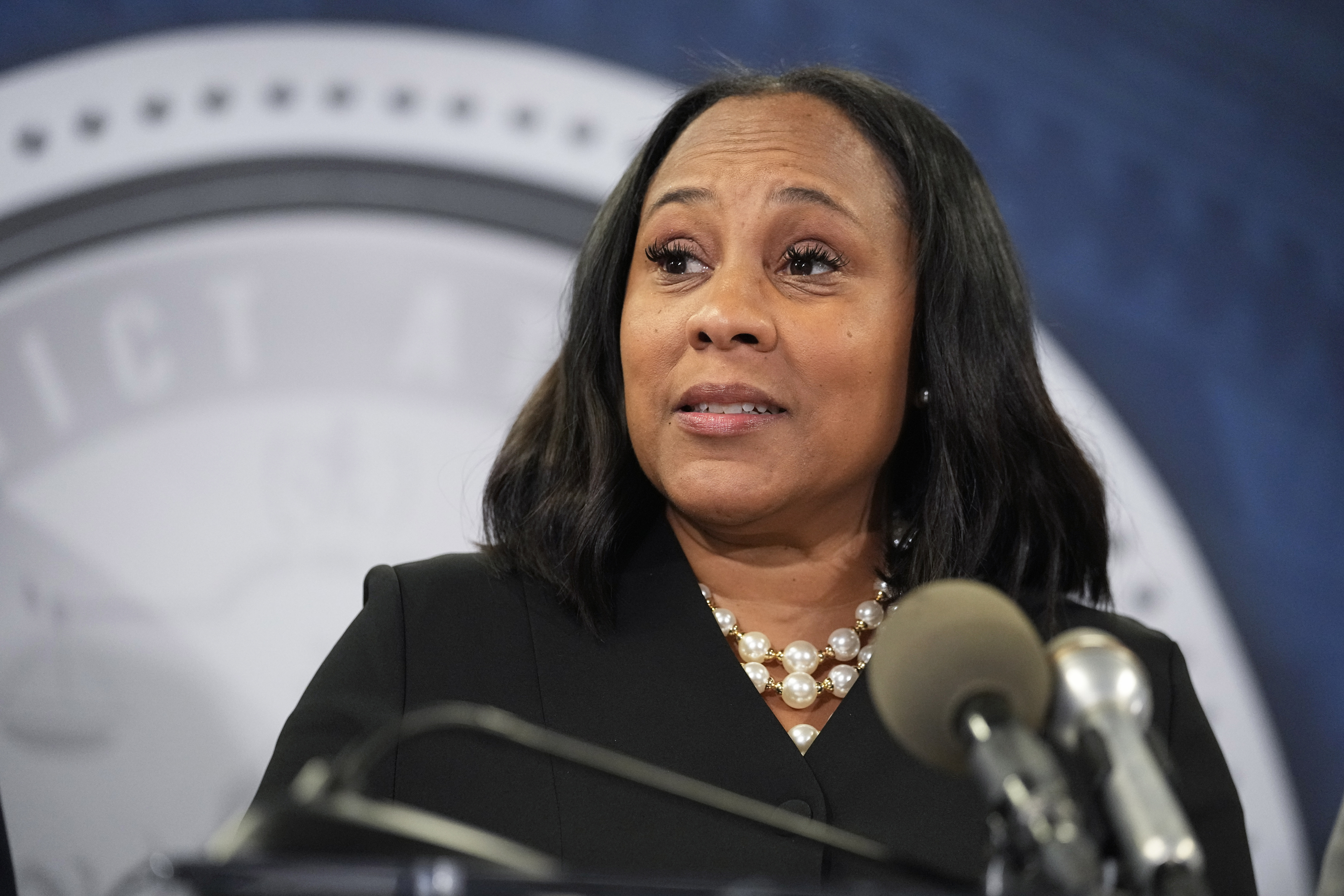‘Offensive’: Georgia prosecutor excoriates Jordan for probe into Trump charges
Fulton County DA Fani Willis told Judiciary Chair Jim Jordan that it's “clear that you lack a basic understanding of the law, its practice, and the ethical obligations of attorneys generally and prosecutors specifically.”


The Georgia district attorney at the heart of former President Donald Trump’s latest indictment on Thursday rebuked House Republicans’ investigation into her office, accusing them of blatantly trying to obstruct a criminal proceeding.
Fulton County DA Fani Willis on Thursday sent a fiery letter to House Judiciary Chair Jim Jordan, responding to his decision to launch an investigation into the Georgia office just hours before Trump appeared in court late last month on charges related to interfering in the 2020 election.
In the blistering, nine-page response, Willis called Jordan’s actions “offensive,” accused him of being “misinformed” and said it’s “clear that you lack a basic understanding of the law, its practice, and the ethical obligations of attorneys generally and prosecutors specifically.”
Jordan requested information about Willis’ use of federal funding and any conversations her office had with the Justice Department or special counsel Jack Smith, who has brought charges against Trump in both a classified documents case and over his actions during the 2020 election. But Willis, in her letter, said that Jordan’s “obvious purpose is to obstruct a Georgia criminal proceeding and to advance outrageous partisan misrepresentations.”
“Your attempt to invoke congressional authority to intrude upon and interfere with an active criminal case in Georgia is flagrantly at odds with the Constitution. … There is absolutely no support for Congress purporting to second guess or somehow supervise an ongoing Georgia criminal investigation and prosecution,” she added in the letter to Jordan.
A spokesperson for the Judiciary Committee chair didn’t immediately respond to a request for comment on Willis’ letter, a copy of which was obtained by POLITICO.
The back-and-forth comes after Willis charged Trump and 18 allies with racketeering charges for attempting to subvert President Joe Biden’s victory in the state during the 2020 election. Trump pleaded not guilty late last month to the charges, the fourth set he has faced over the past year.
Jordan’s request for information followed a familiar playbook Republicans have taken against Trump’s other two prosecutors, Smith and New York district attorney Alvin Bragg. The committee similarly sent a letter to Bragg in the spring, though that probe fell out of the spotlight as other Trump investigations moved to the forefront.
House Republicans have little recourse to fight Trump’s charges outside of their investigation powers. They could take up legislation that would let a former president or vice president move a case from state to federal courts, or try to target funds through spending bills, but the Democratic-controlled Senate would certainly block those efforts.
Willis, in her letter, did provide some details on federal funds that her office receives — one of Jordan’s requests. But the bulk of her letter offered several pointed criticisms of the House GOP’s request, including that it would involve sharing non-public information about an ongoing investigation. And she pointedly argued that it was time for him to “deal with some basic realities.”
“The basic premise of your letter is wrong. The criminal defendant about which you expressconcern was fully aware of the existence of the criminal investigation being conducted by the Fulton County District Attorney’s Office at the time he announced his candidacy for President. I have no doubt that many Americans are the subject of criminal investigations and prosecutions at any given moment,” Willis wrote.
“An announcement of a candidacy for elected office, whether President of the United States, Congress, or state or local office, is not and cannot be a bar to criminal investigation or prosecution,” she added. “Any notion to the contrary is offensive to our democracy and to the fundamental principle that all people are equal before the law.”












